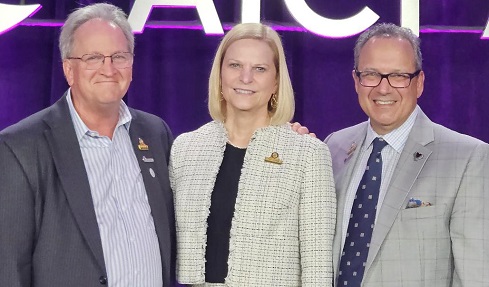Superstar to Operator Model (Eat What You Kill to Building a Village)
CPA firms, generally speaking, look to one of two strategies to build and operate their firm. The first of these is what we call the "superstar" or "Eat What You Kill model," and the second is the "operator, one-firm" or "Building a Village model." CPA firms usually start out using the superstar/Eat What You Kill (EWYK) model, which can be defined as a model that places a premium on the "extraordinary capability, commitment, aggressiveness, entrepreneurship, and stamina of a few people for its success." When you are just starting out, or you are a small operation, this model not only makes sense, but it is very efficient, effective, and profitable.
The second model, the operator model or one-firm model, is the opposite. It can be defined as a model that places a premium on "the extraordinary systems, processes, procedures, methodology (the infrastructure) to maximize the potential of the people that work within it." Here are a couple differences we see between the two:
- Superstars look for extraordinary employees to leverage the firm’s processes; operators look to extraordinary processes to leverage its employees;
- Superstars believe that the perpetuation of the firm and its future success is heavily dependent on having a natural leader at the helm; operators believe the firm’s future success is less about the leader and much more about a strong infrastructure with clearly defined roles and responsibilities;
- Superstars place a premium on adding strong personalities (like business developers and entrepreneurs) to sustain the growth of a business; operators look for more processes, support, and methodology (like enhancing the firm-wide marketing or compensation systems) to place emphasis and capability throughout the organization to grow the business;
- Superstars believe that those that are worthy must go through an "eat-what-you-kill" rite of passage – it is a mentality that assumes that the cream will rise to the top on its own, or "only the strong will survive;" operators believe that almost anyone can develop into a technically competent project manager with client relationship responsibility. Therefore, career management that provides clear career paths becomes critical to the firm’s success;
- Superstars thrive on creating, changing, inventing, experimenting, and taking risks; operators thrive on consistency, controls, setting standards, compliance with standards, continuous improvement, and low risk.
Both profiles are important to building and developing a successful service operation, but the optimum profile differs depending on the maturity of the firm. Consider a continuum, with the left most point being a superstar and the right most point being an operator. Start-up CPA firms are usually founded on the superstar philosophy, which relies on an individual or two to find the clients, service them, bill and collect, and, in their spare time, run the business. Without these entrepreneurs, there would be no business to transition. But because the superstar strategy is so dependent on these individuals, successful transition is tricky. As a firm matures and the demand for services shifts from exponential growth to a more methodical and predictable level, firms usually shift to an operator strategy of management, in order to build a firm that can continue through generations of leaders. This operator mentality shifts the firm’s philosophies away from catering to irreplaceable people to developing an infrastructure that creates irreplaceable positions (that a variety of people can successfully fill).
We help firms that want to make the transition from the superstar to the operator model through a process that typically takes at least a year to gain full momentum.

